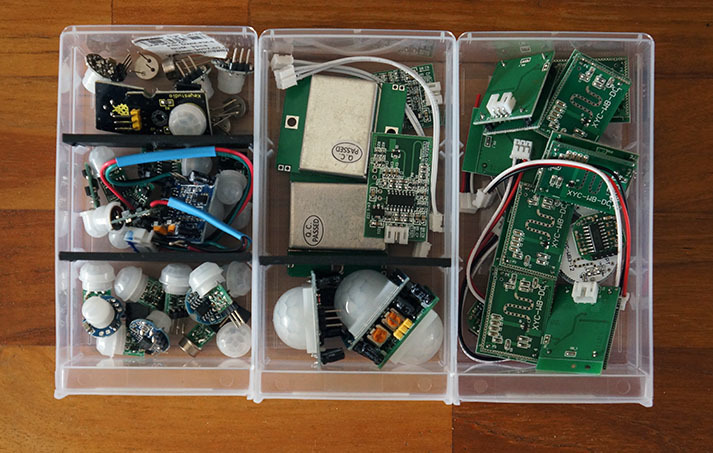Hi. Bloodied but unbowed, I’m still trying to bring about a Thing Network in Boston! My latest attempt is keyed to a local contest to find novel solutions to aging. It ties nicely to my SmartAging concept, which combines Quantified Self devices to improve seniors’ health & their relationship to their doctors, and smart home devices that would make it easier for them to manage their homes as they age & stay out of institutions. It also ties in nicely with smart cities, especially since so many seniors are clustered in cities, and there’s already a
Hello. Hummm… interesting.
I’m MD (Family practice) + Software dev + Hardware Dev in Europe and having the same questions.
Do you know if there are groups to work on this subject.
There are a few ideas which came in my mind
- detector of body laid on the floor (not normal)
- detector of epilepsy crisis
- gps localisation around one point for alzheimer’s disease with alerts
- small basic holter ecg inserted in a watch for basic checkup and basic alerts
- detection of expired food in the fridges
- small distance calculators stick on wheel chairs
Yes I am and I call it SAM … Senior Activity Monitor 
It ‘watches’ over the senior but its not a medical system, it’s for the caretaker who can see on his/her phone that his/ her father is out of bed and made some coffee.
However, if father didn’t come out of bed between certain (A.I. self learned ) times an alarm is generated.
Or when the frontdoor opens at 3 o clock at night, when he didn’t open the fridge in 12 hours… when he didn’t open his medicine box.
There are some ‘commercial’ system out there …
- https://www.alarm.com/productservices/wellness.aspx/beclosesystem.aspx
- http://www.aplaceformom.com/blog/2014-6-1-cutting-edge-products-for-seniors/
I came to the conclusion that LoRaWAN is not the best choice for this type of projects
LoRa is usable for communication between sensors and a central CPU/receiver, even BLE
Take also a look a this:
I’m not related to them, but I’m also studding the same Smart-Health domain…
I do not think IoT should be medical. It should be a lot of systems to ease processes, generate automatic alerts, save time in time consuming tasks which can be automated, assist the healthcare worker and liberate his/her time so she/he is focused at 100% giving high value work. Not being medical with IA is probably not very sexy, but giving medical time back to the human is probably a good option.
IOT IS allready involved in medical systems.
And in the near future it will be more and more involved in normal everyday live.
Can you imagine a sensor build inside your toilet and everytime you go it analyzes your urine… its there, in the labs 
Yes sure It will be medical probably.
I’m not sure this is the right direction at the moment. I mean saving time to give it back to diagnosis reflexion is probably faster and saving more money for the health tax payer. At least in the first steps of the medical AI times.
Definitely, IoT is already on the Health market, and many others.
Regarding some DIY solutions the ideas for health monitoring:
Motion tracking: X-Band radars: https://www.youtube.com/watch?v=qkb-IIYq-Dg
This will only be able to track movement, but there are already sensors for tracking respiration, for example during sleep, the person might not be moving but breathing. Probably should be able to track and detect seizures:
ECG and other bio signals: http://www.bitalino.com/index.php/en/
I encountered lots of unexpected 'problems while testing sensors with my old mother, problems start when the senior also have pets :wink

some cheap sensors get triggered when the processor wakes up
Yes, the cat is alive so everything is fine syndrome 
Things like the fridge, tv, power consumption, medicines also need to be monitored to build a trustful “image” of the current status.
x band sensor are for example not very usefull in hirise buildings.
The signal goes through walls AND floors 
Thank you so much for sharing this idea.
Guess I’d have to disagree on that: I’ve got a great unit on back of my iPhone, the AliveCor, that is FDA-approved, gives the same degree of accuracy as a $10,000 in-patient EKG, and, according to journal articles, is actually more helpful than an inpatient one because you can record & annotate it while you’re actually doing daily activities. Many other good examples as well.